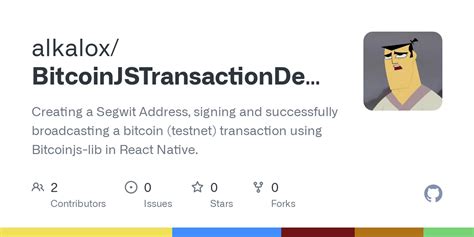Validating Bitcoin Addresses with the BitcoinJS Library
When working with cryptocurrencies, validating a Bitcoin address can be crucial to ensure the authenticity and security of transactions. In this article, we will explore how to validate a Bitcoin address using the BitcoinJS library in JavaScript.
What is BitcoinJS?
BitcoinJS is a popular JavaScript library for interacting with the Bitcoin blockchain. It provides a simple and convenient API for working with Bitcoin addresses, transactions, and wallets.
Validate a Bitcoin Address with BitcoinJS
To validate a Bitcoin address using BitcoinJS, you can use the validateAddress function provided by the library. This function has two arguments: the address to validate and an optional callback function that will return a boolean value indicating whether the address is valid or not.
Here is an example of using the validateAddress function:
const BitcoinJS = require('bitcoinjs-lib');
// Create a new BitcoinJS instance
const bitcoinJs = new BitcoinJS({
network: "mainnet",
});
// Set the address to validate
const address = "1A1z9Pf8TbB7o6pWdCtEeDyH6Jg4GzrRc";
// Validate the address using the callback function (optional)
bitcoinJs.validateAddress(address, (isValid) => {
if (! is valid) {
console.error(Invalid Bitcoin address: ${address});
} else {
// Use the validated address
console.log(Valid Bitcoin address: ${address});
}
});
In this example, we create a new BitcoinJS instance and set an example Bitcoin address. Then, we use the validateAddress function to validate the address. If the address is invalid, the callback function will return false and we can log an error message using console.error.
Other Ways to Validate Bitcoin Addresses in JavaScript

While the “validateAddress” function provided by BitcoinJS is a convenient solution to validate Bitcoin addresses, it is not the only way to do it. Here are some alternative approaches:
- Manual Address Validation: You can manually validate Bitcoin addresses by checking their length, format, and prefix (e.g., “bc1”). This approach requires more code and attention to detail, but provides a high degree of control over the validation process.
- Using a Regular Expression: You can use a regular expression to validate Bitcoin addresses in JavaScript. For example:
function isValidBitcoinAddress(address) {
const pattern = /^bc[1-9][a-f0-9]{25}$/;
return pattern.test(address);
}
This function checks if the address matches the prefix “bc”, followed by a hexadecimal string (up to 25 characters).
- Using a third-party library: There are other libraries available that provide more advanced features to validate Bitcoin addresses in JavaScript, such as the “bitcoin validator” library.
Conclusion
In conclusion, validating Bitcoin addresses with BitcoinJS is a simple process that can be achieved using the validateAddress function or by implementing manual validation and regular expression checks. While there are other ways to achieve this goal, these alternatives require more code and attention to detail, but provide greater flexibility and control over the validation process.
Example use cases
- Validate Bitcoin addresses in a JavaScript-based application to interact with the Bitcoin network.
- Create a simple script that generates and validates Bitcoin addresses programmatically.
- Use the
bitcoin-validatorlibrary as an alternative or complement to thevalidateAddressfunction.
